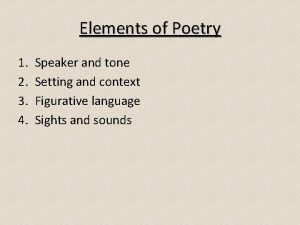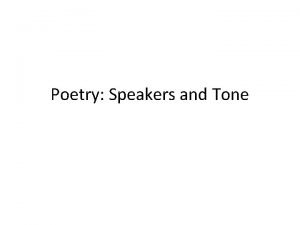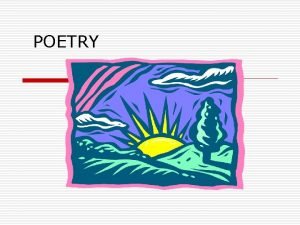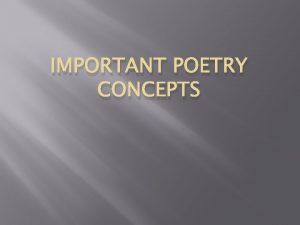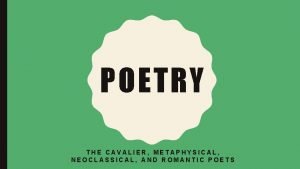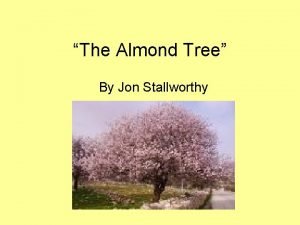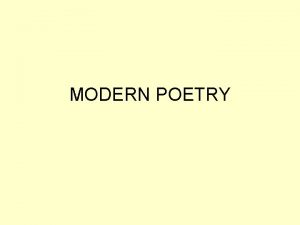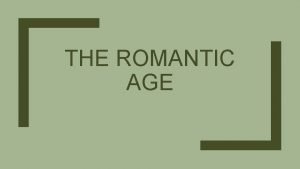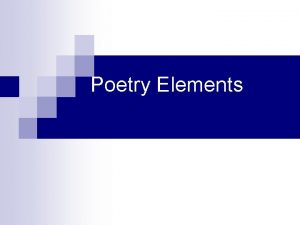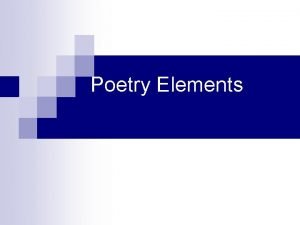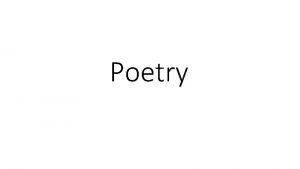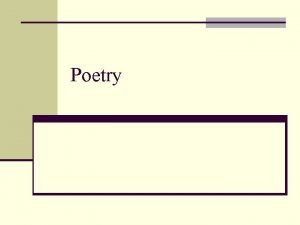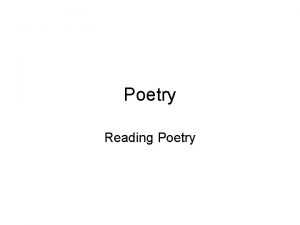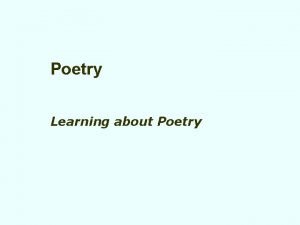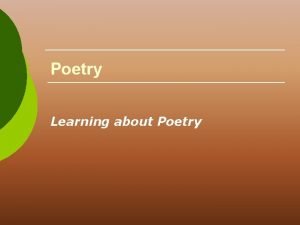Elements of Poetry 1 2 3 4 Speaker









- Slides: 9

Elements of Poetry 1. 2. 3. 4. Speaker and tone Setting and context Figurative language Sights and sounds

Speaker and Tone • Speaker – Character who narrates – Voice assumed by the writer – Way the writer uses language to reflect personality and attitude • Tone – Emotional attitude – Creates mood and emotion – Examples: ironic, playful, sarcastic, sincere

Speaker and Tone To assess: -read aloud -notice words that stand out -consider speaker as character -compare and contrast with poems of similar themes

Setting and context • Setting - time and place AND what creates sense of time and place • Context – like setting but more as environment of the time To assess: – Look at sensory details and mood – Visualize background information – Clarify questions/answers to historical and cultural background

Figurative Language • Meant to be understood imaginatively instead of literally • Examples: – Simile/metaphor/analogy – Personification – Symbolism – Hyperbole

Sight and sound • Sight – imagery – descriptive language creating vivid pictures, appealing to the senses • Sound – rhythm / meter – patterns of beats – regular or irregular – Rhyme / rhyme scheme – Assonance (repetition of vowel sounds) – Consonance (repetition of consonant sounds) – Alliteration – usually beginning of words – Onomatopoeia – Repetition

Things to think about as you not only analyze but also create/shape poems • Dramatic Situation – – Who is speaking? To whom is he speaking? What is the situation? What is the speaker’s tone? • Imagery • Theme

But don’t forget about… • Diction (word choice of words, and the force, accuracy, and distinction with which they are used ) – – Connotation (suggested meaning of words / associations) Denotation (dictionary definition) Abstract (can only be understood intellectually) Concrete (words describing physical objects) • Figurative Language – Metaphor (implied or direct comparisons) – Simile (comparisons using like or as) – Personification

And… • Rhetorical Language – – – Irony Hyperbole Allusion Pun (play on words) Paradox (contradiction) Oxymoron (self contradiction) • Syntax (arrangement) – Length – “Unusual” elements
